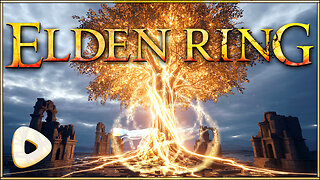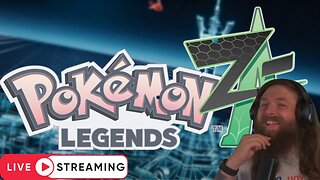Premium Only Content

NO TWO SIBLINGS GROW UP IN THE SAME HOUSE
I. THE MYTH OF THE SHARED CHILDHOOD
We like to believe siblings grow up in the same house.
Same parents.
Same rules.
Same love.
But this is a comforting illusion.
In reality, no siblings grow up in the same house—because there is no such thing as “the same” parent, or “the same” childhood, even under the same roof.
The firstborn meets one version of the parents—new, idealistic, uncertain.
The second meets another—more tired, more experienced, perhaps more stressed.
The third may inherit parents battling bills, illness, or quiet emotional exile.
The bedtime story that soothed the first child
is replaced with silence for the third—
not from neglect,
but from fatigue.
Each child doesn’t just grow up with a parent—
they create one.
⸻
II. THE FAMILY IS AN EMOTIONAL ECOSYSTEM
The house is shared. The emotional climate is not.
One child is raised by warmth.
Another by pressure.
Another by absence.
Each evokes something different in the parent:
a mirror of their hopes, a trigger of their wounds,
a reflection of who they wish they were—or fear they are.
The family is not a static structure.
It is an emotional ecosystem—dynamic, reactive, alive.
Each child adapts like a species in a different niche.
Roles are not chosen. They are absorbed.
⸻
III. INVISIBLE CONTRACTS, PSYCHIC ROLES
In this ecosystem, siblings divide the emotional space:
• The Golden Child
• The Caretaker
• The Rebel
• The Lost One
• The Truth-Teller
• The Ghost
These are not personalities.
They are survival strategies.
“If she’s the favorite, I’ll disappear.”
“If he’s allowed to be loud, I’ll be good.”
We become who we had to be
so someone else could be who they needed to be.
Sometimes, the greatest abandonment
was being the “good one.”
⸻
IV. MEMORY IS NOT A RECORD—IT’S A WAR
Ask three siblings about the same childhood.
You’ll hear three different histories.
Who’s right?
All of them.
Memory is not a record of facts—
it is a reconstruction of meaning,
shaped by attention, emotion, and identity.
One sibling remembers laughter.
Another remembers loneliness.
Another remembers being invisible
while everyone smiled for photos.
The family myth—
“We all had a good childhood.”
—is often a contract of silence.
Coherence is not truth.
Harmony is not honesty.
⸻
V. TRAUMA TRAVELS SIDEWAYS AND DOWNWARD
Sometimes, you weren’t neglected—
you were overlooked
because a sibling consumed all the oxygen.
You were the stable one.
The responsible one.
The easy one.
And so you were left alone,
praised,
and unseen.
And when grief is never voiced,
it becomes symptom.
When pain is not felt,
it becomes fate—
echoing through children
who never lived that pain,
but inherited its shape.
Your sibling’s silence
may live in your child’s nervous system.
⸻
VI. THE PARENT IS A REFLECTION—NOT A CONSTANT
Your mother was not your sibling’s mother.
Your father was not their father.
Even if the name was the same.
Because the parent is not a person—
it is an experience.
Shaped by time.
Shaped by who they were then.
Shaped by what each child evokes.
Some children awaken love.
Some awaken fear.
Some awaken the parts of the parent that were never allowed to speak.
The “problem child” is often the truth-teller.
The one who breaks the spell.
⸻
VII. SIBLINGHOOD IS A SOUL CONTRACT
This wasn’t random.
Siblings are not accidents of biology—
they are karmic mirrors.
Some of your deepest wounds
were shaped not by strangers,
but by the one who shared your blood
and never saw your soul.
That wound had purpose.
“You play the shadow, I’ll play the light.”
“You carry the rage, I’ll carry the silence.”
You chose each other
in a realm beyond memory,
not to match,
but to awaken.
⸻
VIII. ESCAPING THE ROLE, NOT THE LOVE
You can leave the role
without leaving the family.
You can break the pattern
and still hold the story with compassion.
You don’t have to agree on the past.
You only have to honor the version you survived.
You don’t heal by proving your memory is the only true one.
You heal by allowing your truth to live—
even if no one else believes it.
You were not born to be understood.
You were born to remember yourself.
⸻
IX. WHAT FAMILY ACTUALLY IS
Family is not where you became yourself.
It is where you first learned to abandon yourself
in exchange for love.
But that abandonment shaped your calling.
The role you were given
points to the self you were forbidden.
And now—
you remember.
You can stop playing the part.
You can stop apologizing for what you saw.
You can stop needing them to see it.
You were raised inside a system that could not see all of you.
But now—you can.
⸻
X. FINAL TRUTH
No two siblings grow up in the same house.
Because each came to break a different spell.
Each came to live a different myth.
Each came to reclaim a different piece of the soul.
You can forgive.
You can remember.
You can rewrite the ending.
And the house may never change—
but you will.
-
 15:02
15:02
FragmentsOfTruth
4 days agoUnveiling the Climate Hoax: CO2 Myths, Weather Wars, and Global Control Agendas
286 -
 6:43:40
6:43:40
GritsGG
8 hours agoWorld Record Win Streak Attempt! #1 Most Wins 3880+!
14.8K1 -

Tundra Tactical
6 hours ago $10.28 earnedProfessional Gun Nerd Plays Battlefield 6
42.3K5 -
 1:01:12
1:01:12
Donald Trump Jr.
8 hours agoThe China Matrix with Journalist Lee Smith | TRIGGERED Ep.288
136K86 -
 11:56:00
11:56:00
Dr Disrespect
13 hours ago🔴LIVE - DR DISRESPECT - ARC RAIDERS - FULL SEND INTO THE RED
157K17 -
 LIVE
LIVE
JdaDelete
4 hours ago $0.35 earnedFinally playing Eldin Ring | First Playthrough Episode 2
62 watching -
 1:02:08
1:02:08
BonginoReport
7 hours agoNicki Minaj Speaks Out Against Christian Persecution - Nightly Scroll w/ Hayley Caronia (Ep.169)
64.6K46 -
 5:23:36
5:23:36
HomieQuest
6 hours agoLive Streaming! Pokemon Legends Z-A
3.73K3 -
 5:33:02
5:33:02
FusedAegisTV
9 hours agoFUSEDAEGIS PLAYS THE GREATEST JRPG EVER MADE ⌛► CHRONO TRIGGER (1995) Part 3
3.26K2 -
 2:13:20
2:13:20
Nerdrotic
5 hours ago $2.97 earnedNerdrotic At Night 531
31.7K4